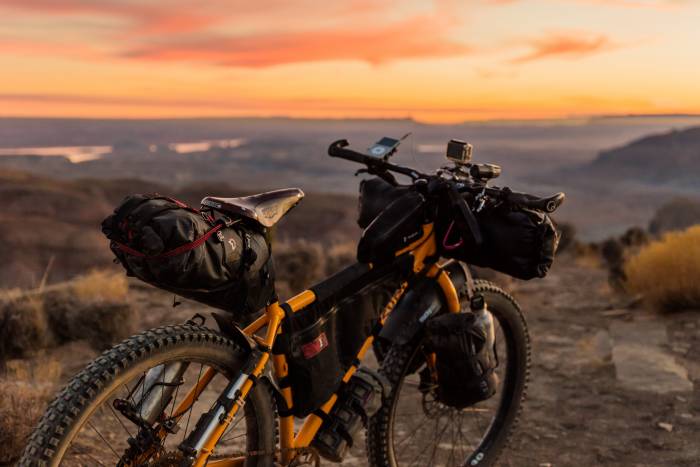Bikepacking, the marriage of biking and backpacking, offers a unique way to explore the great outdoors. Whether you’re a seasoned adventurer or a novice seeking new experiences, embarking on a bikepacking journey promises excitement, challenge, and unforgettable memories. As you gear up for your next two-wheeled escapade, it’s crucial to equip yourself with the right accessories to ensure comfort, safety, and convenience along the way. Here, we’ll explore essential bike packing accessories that can enhance your experience and make your trip more enjoyable.
1. Frame Bags
Maximizing storage space while maintaining balance and maneuverability is essential in bikepacking. Frame bags, designed to fit within the triangle of your bike’s frame, offer a streamlined solution for carrying gear. These bags typically come in various sizes and configurations, allowing you to organize your essentials efficiently. From storing tools and spare parts to food and clothing, frame bags provide easy access to your gear without compromising your bike’s performance.
2. Handlebar Bags
Utilizing the space in front of your handlebars, handlebar bags are ideal for carrying lightweight and bulky items such as sleeping bags, tents, or clothing layers. With their quick-access compartments and waterproof designs, handlebar bags keep your gear secure and protected from the elements. Some models even feature detachable shoulder straps, allowing you to convert them into convenient carry-on packs when you’re off the bike.
3. Seat Packs
Maximize your bike’s carrying capacity by utilizing the often-underutilized space beneath your saddle. Seat packs offer a practical solution for transporting heavier items like camping gear or spare clothing without affecting your bike’s handling. Their sleek, aerodynamic designs minimize wind resistance and ensure a stable ride even on rugged terrain. Look for seat packs with compression straps to secure your load and prevent shifting during bumpy rides.
4. Frame-mounted Bottle Cages
Staying hydrated is crucial during long-distance bikepacking trips, especially in hot or humid conditions. Frame-mounted bottle cages provide easy access to water or other beverages without the need to stop and unpack. Consider investing in lightweight, durable cages that securely hold your bottles in place, even on rough terrain. Some models feature adjustable designs to accommodate different bottle sizes and shapes, ensuring compatibility with your preferred hydration system.
5. Navigation Tools
In the age of smartphones and GPS devices, navigation has become more accessible than ever. However, relying solely on electronic gadgets can be risky, especially in remote areas with limited connectivity or battery power. Equip yourself with traditional navigation tools like maps, compasses, and route guides to supplement your digital devices. Waterproof map cases and handlebar-mounted map holders keep your navigation aids easily accessible and protected from the elements, ensuring you stay on course throughout your journey.
6. Tool Kits and Repair Supplies
Mechanical issues are an inevitable part of bikepacking adventures, but being prepared can help minimize downtime and keep you rolling smoothly. Pack a compact tool kit containing essential tools such as wrenches, tire levers, and multitools to tackle common repairs on the go. Additionally, carry spare parts like inner tubes, patch kits, and chain links to address unexpected breakdowns or wear and tear. Regularly inspect your bike before and during your trip to identify potential issues early and prevent them from escalating into more significant problems.
7. Emergency Supplies
Safety should always be a top priority when bikepacking in remote or unfamiliar terrain. Pack a lightweight first aid kit containing essential supplies like bandages, antiseptic wipes, and pain relievers to address minor injuries or medical issues. Additionally, consider carrying emergency signaling devices such as whistles, signal mirrors, or personal locator beacons (PLBs) to call for help in case of emergencies. While it’s essential to be self-sufficient, don’t hesitate to seek assistance from fellow cyclists or locals if you encounter challenges beyond your abilities.
